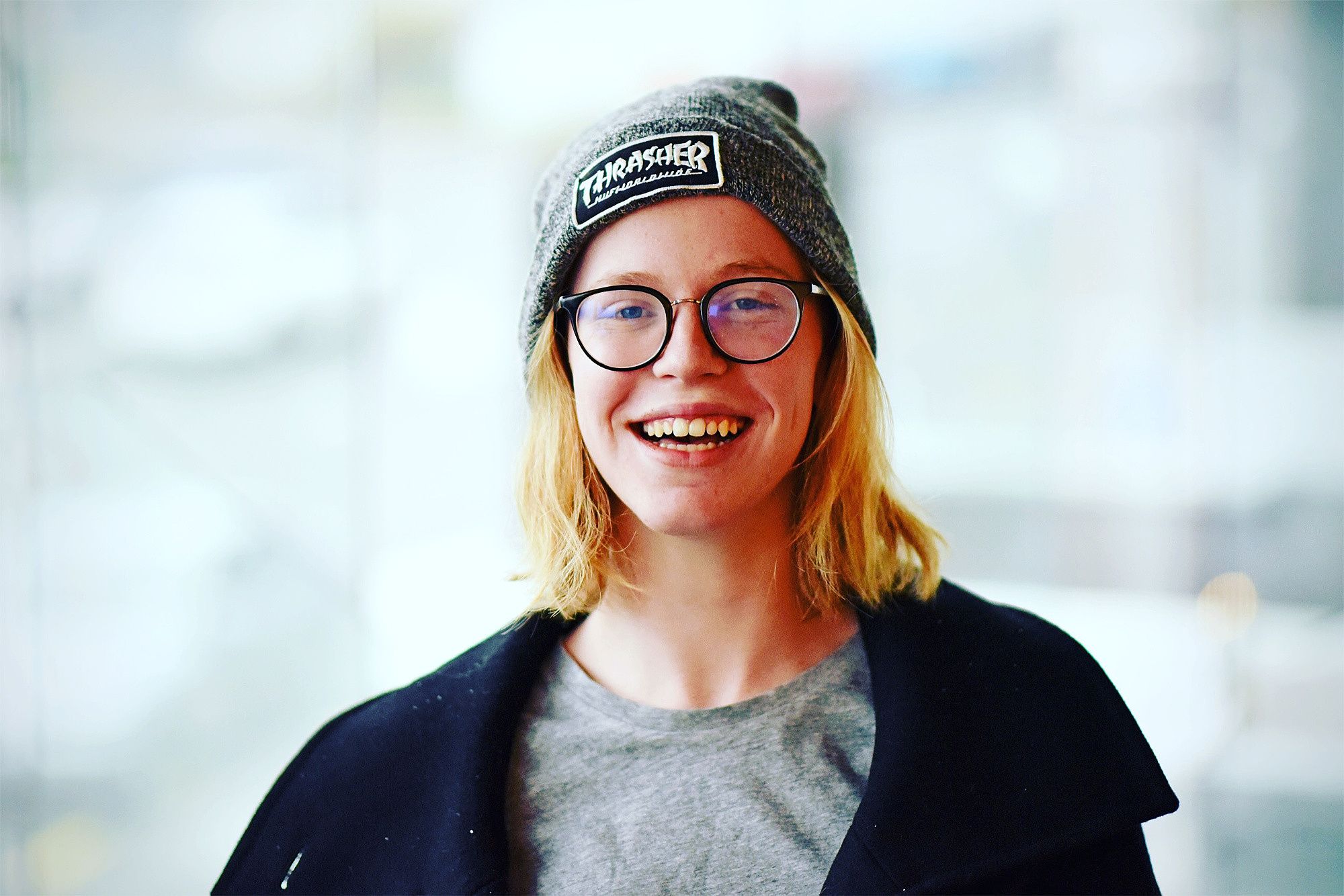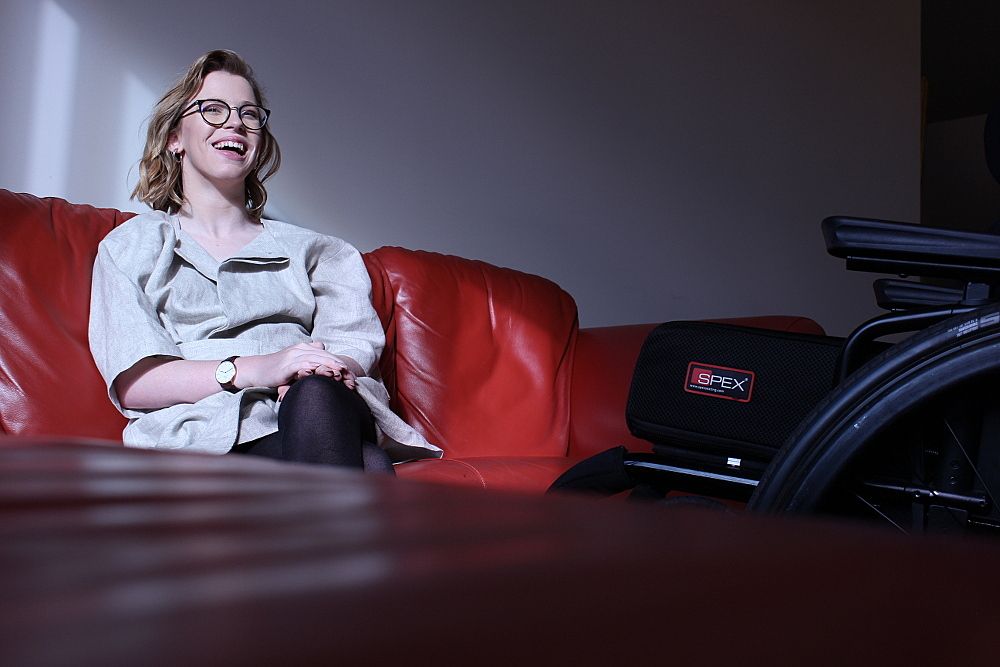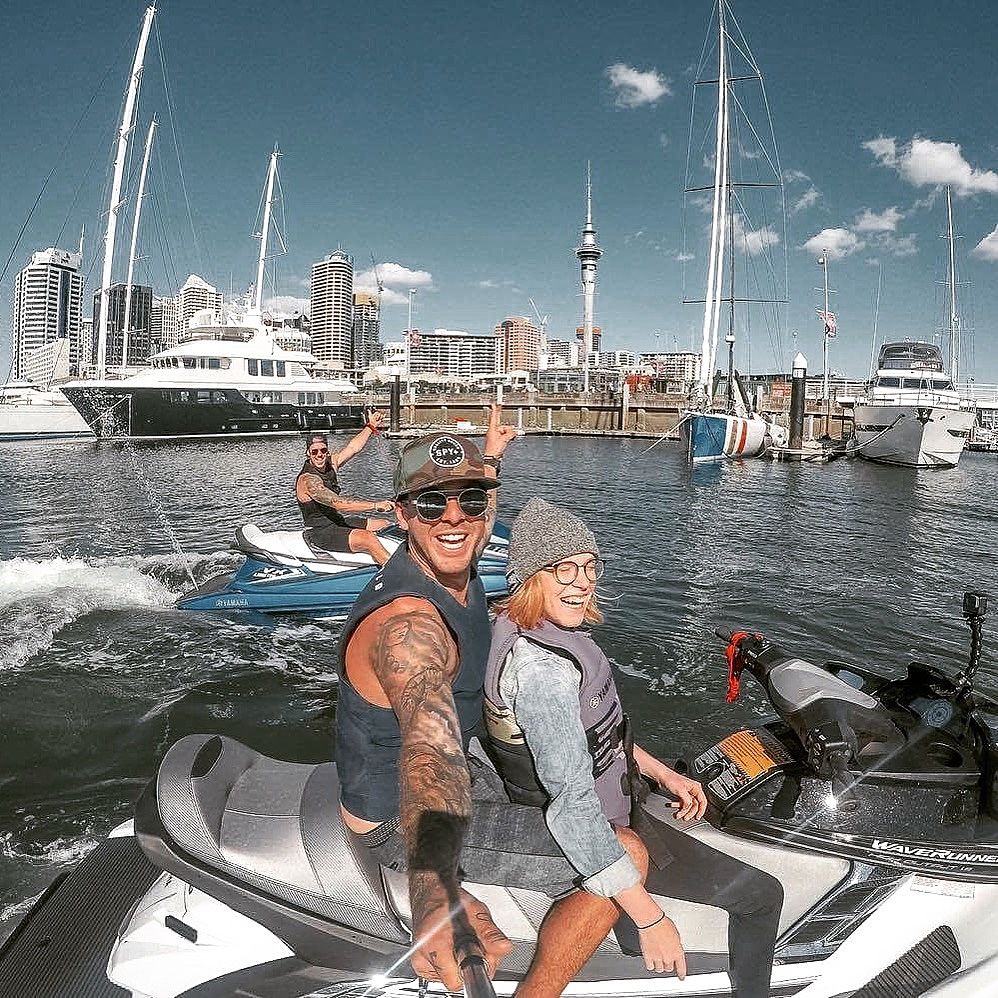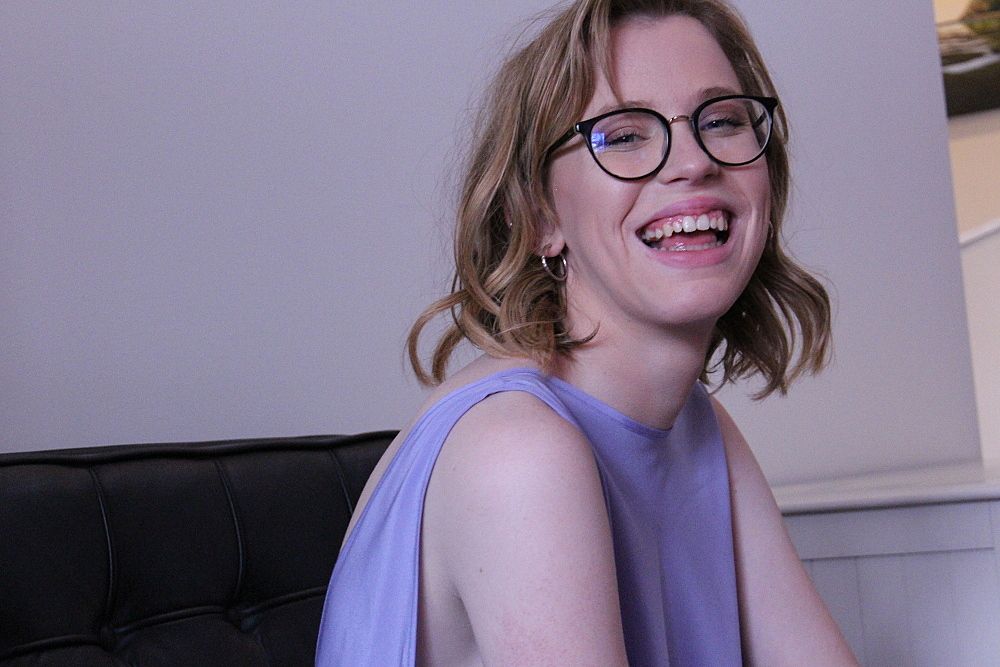Alt Kid On the Edge of Greatness
Grace Stratton, who has been nominated in the Young Leader category, tells us about how she went from alt kid to disability advocate.
This week the Women of Influence Awards will be held in Auckland. Grace Stratton, who has been nominated in the Young Leader category, tells us about how she went from alt kid to disability advocate.
Jay Gatsby, the main character of the F. Scott Fitzgerald novel The Great Gatsby, said: ‘I was within and without, simultaneously enchanted and repelled by the inexhaustible variety of life.’ This is most certainly true – there are great variety of ways we can live, and if we’re lucky, we each get to choose how to navigate life. I find this fact equal parts frightening and empowering. For me, as a nearly eighteen-year-old woman living in Auckland, and living in a wheelchair with cerebral palsy, I have been figuring out how to live my life.
Earlier this year I read American writer Melissa Broder’s collection of essays, So Sad Today. Reading Broder made me want to harness the same raw and honest qualities in my own writing, and to bring that to the conversation about disability in mainstream society. The media is its own microcosm of Gatsby’s inexhaustible variety. Personalities fill our various screens and newsfeeds, all with a story and a charismatic smile. I started to ask myself, what stories am I being fed by the media? Does the content represent my minority? How can I contribute, and what can I bring to the table?
The question of ‘what can I contribute’ is something I’ve always asked myself.
The question of ‘what can I contribute’ is something I’ve always asked myself. As a young person in a wheelchair I struggled physically to fulfil simple tasks – things like doing up buttons or holding a tea cup. Because of my physical struggles I strived to know my place in the world. I just wanted to feel certain that I had a place in society that was bigger than my wheelchair, and had more meaning than my diagnosis. I wanted to be more than the realities that were out of my hands. I didn’t want to be the special kid; I wanted to be Grace.
Now that I am almost eighteen I feel like I have begun to find my place. I am just about to get my restricted license in an adapted car, I have finished college and started a business: gracegeorgia.co.nz. It’s an online platform aimed at mainstreaming disability and sparking diversity. I am slowly but surely overcoming the challenges that come with entering adulthood, which are of course amplified by my disability. I do not overcome these challenges alone. My parents and mentors are journeying with me, and a part of how I cope is by documenting my experiences online.
Writing this essay made me think about Jake Bailey. He gave a speech as head boy of Christchurch Boys' High School while having his fifth day of chemotherapy for Burkitts non-Hodgkinson lymphoma. To date, nearly two million people have watched his speech, which he also turned into a book. When I heard Jake’s words about being gracious and grateful in the face of adversity I was days away from having surgery. I revisited his speech numerous times during my rehabilitation: I had just undergone a bi-lateral fusion of my feet, which meant that I would have to spend twelve weeks in two leg casts. I was unable to put my feet on the ground, but Jake’s speech made me feel grounded.
Throughout my life I have had sixteen surgical procedures, all aimed at improving my body’s function and to decrease my dependence on others. While the work that comes with surgery is worth it, the procedures are incredibly difficult. They’re physically taxing and bring with them large stretches of time when I am incapacitated. This is not just hard on me but also on my family. It was especially true in the case of my last surgery. I was almost seventeen and craving independence, but I needed help with daily tasks like going to the bathroom. Jake’s speech and online presence gave me a place to go when I felt hopeless. It made me decide to share my own voice online. I wanted to give people the sense of comfort and motivation that Jake gave me.
Growing up, I never found myself in the media. I didn’t see women in mainstream fashion or pop culture who were wheelchair users. I didn’t hear girls talk about living in a wheelchair. Instead of waiting for that person to come along, I decided to become her. It has been no easy task. I had no knowledge about what was required for an internet start-up, but I began my business during rehabilitation so I had lots of free time. While my physical body was healing my mind became consumed with search engines, coding and marketing. I spent time developing my writing so that I could become better at telling my story and the stories of others living with disability.
Instead of waiting for that person to come along, I decided to become her.
Since then I have come a long way. I am grateful that my website came along when it did. It helped me get through rehabilitation and saved me from focusing on the fact that I was sick and sore. I remember that today as I work on my career not just from a place of want, but also from need. Writing and being online is something that gives me reason to fight my everyday challenges.
One thing about being online is that I had to decide how to market myself. I was born different; my wheelchair means that I often get people’s attention when I am out and about. Because I am different it made sense to market myself differently. I have turned my disability into a powerful marketing tool, because if there is one thing I’ve learned in this industry it’s that being different is positive. In the physical world I often feel like I need to fit in, but in the online world being different stands out.
I’ve also found that being online has changed how I feel in the physical world. A few years ago I would have been afraid of going to events and knowing that I would most likely be the only person in a wheelchair. This happened recently at an event for Trelise Cooper – I was the only one there who used a wheelchair. I spent a lot of my night looking up at people, because, man, models are tall! But I didn’t let it worry me. Instead I let my wheelchair give me confidence because I knew it made me stand out.
More than ever online media uses ‘diversity’ as a point of difference. In short, difference sells. I’ve spent time wondering if it’s wrong to turn my disability into a commodity and marketing tool; I am acutely aware that there are people out there who would rather I didn’t, and I am aware of the issues with tokenism. But we live in a society that still has strict expectations of disability. Wheelchair users aren’t in catalogues or on a runway; you can’t even make a disabled character on the Sims 4 computer game. As accepting as our society pretends to be, disability is still marginalised, separated from the mainstream, and some people like it that way.
If a company includes a disabled model in their campaign, disabled individuals gain further courage to embrace themselves and their bodies As someone who lived my younger years without seeing disabled figures in media, I want to keep this happening. I know that as we work toward an inclusive media there will be flaws in the construct, but we have to have the courage to keep working.
New Zealand graphic designer and androgynous model Zakk d'Larte is an example of this. He spends his time advocating for acceptance of the LGBTQ+ community on his online platforms. Being online helped Zakk find their identity and build a community, and this is what the internet has done for me, and what I want to help do for others.
While I can see the rise of more inclusive media online, this does not mean we stop needing real-world advocacy.
While I can see the rise of more inclusive media online, this does not mean we stop needing real-world advocacy. At eighteen Zakk was attacked on the street, beaten, and verbally abused because of their sexual orientation. The incident shows there will always be a need for education surrounding life as a marginalised person. There is always going to he hate for people who are different. I’m not trying to say my experiences are the same as Zakk’s – I cannot know what it is to be them, as they cannot know what it is to be me. But I think I can say both Zakk and I want our culture to be different. Entrepreneur and blogger Seth Godin said, ‘Our culture works hard to prevent change.’ In the face of real world prejudice, the juggernaut of social media can help normalise the marginalised experience. We’re human after all and the two worlds, online and real, cross over.
During my journey with Grace Georgia I have met many people who prove this cross over to be true. One of those people is a mentor of mine, named Dean. He told me that influencer marketing is ‘simply the age old concept that opinions people trust can move them into action.’ If creators like Zakk and myself can strive to improve our communities and support our audiences then I am confident we will see change in the world on a larger scale.
I am beginning to see how my content can help people. I got a message a couple of weeks ago from a grandmother who told me she’d read my blog, and that her grandson has recently began using a wheelchair. She told me that before her Grandson’s accident she thought my content was important, but it means even more to her now. I remember thinking that if my content could help that one person to process a difficult time in their lives then that’s empowering to me – that is my why. The idea that my writing can help people makes me want to keep hustling for quality content, but to also to continue to be authentic. I feel like my world is on the edge of greatness, and I cannot wait to see where Gatsby’s inexhaustible variety goes.



